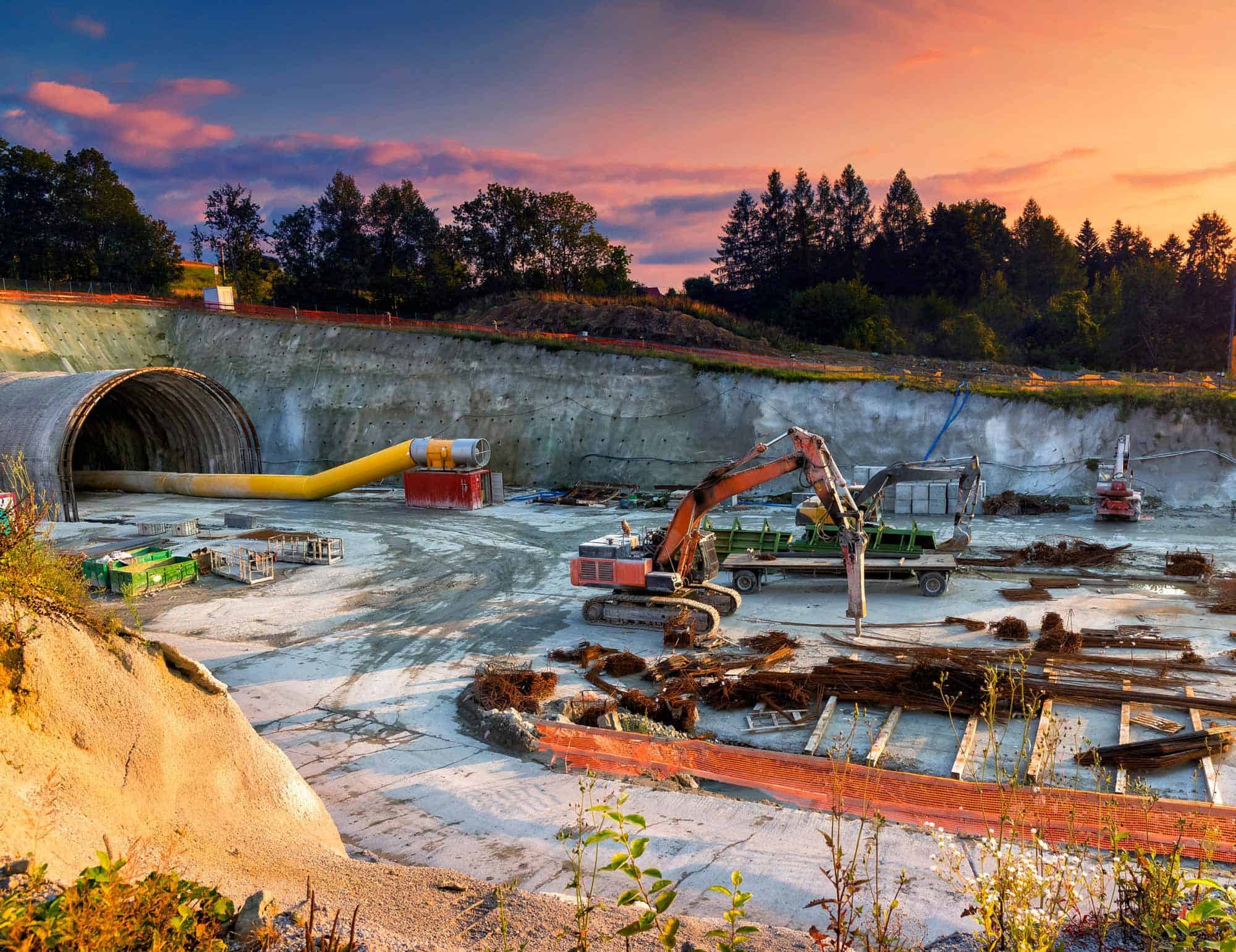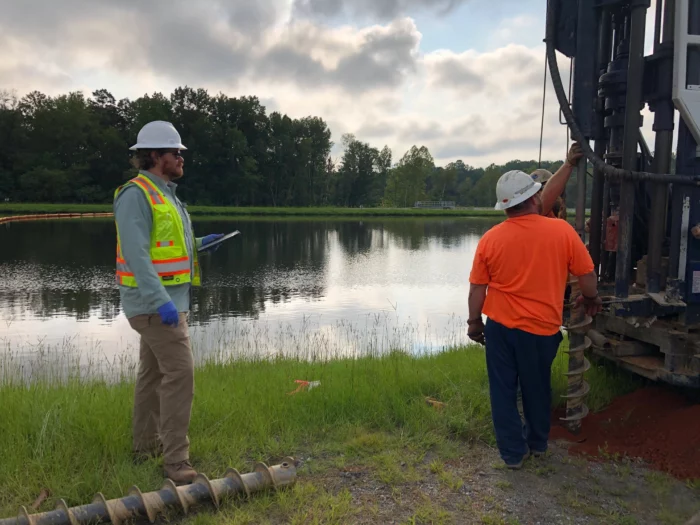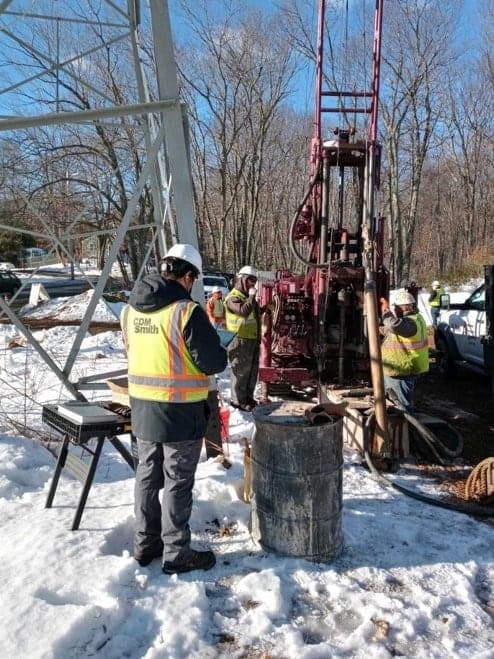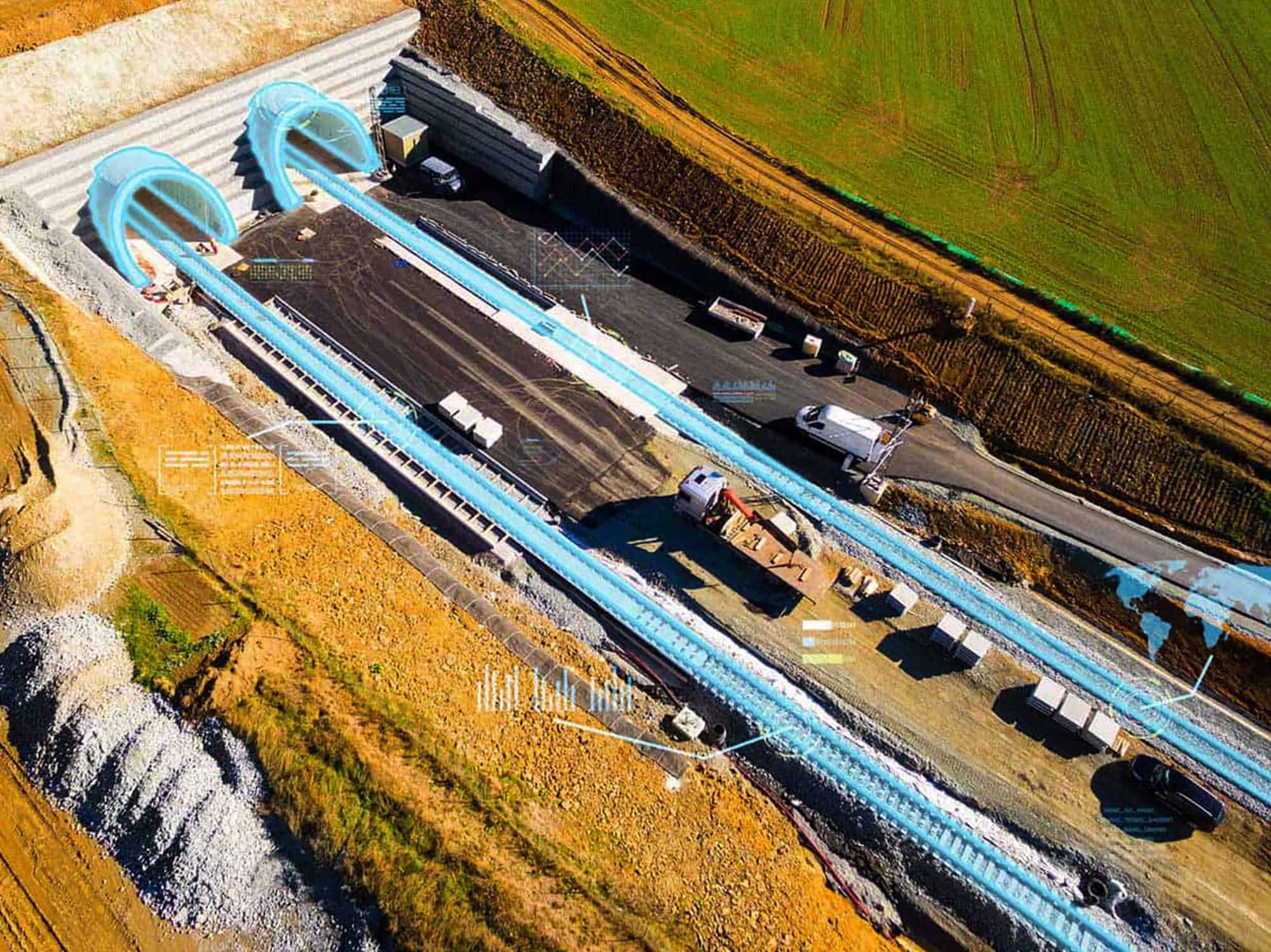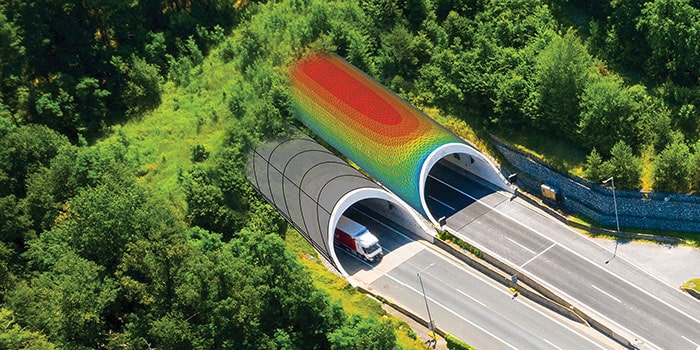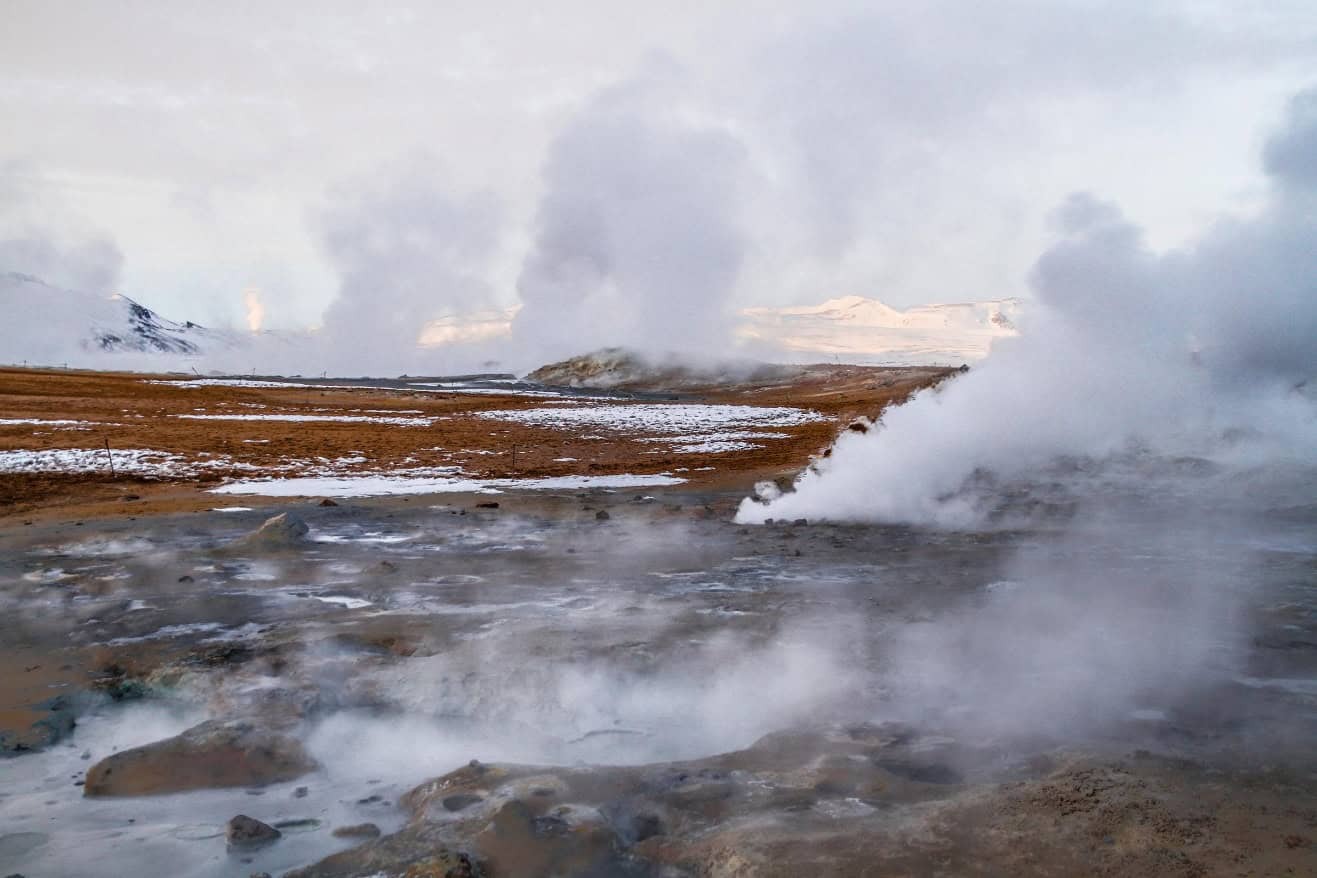Since engineering and construction company CDM Smith’s adopted OpenGround, they can leverage a one stop shop for all their geotechnical data. This enhances quality and security while positioning the firm for a wider cloud-based adoption. This is not only paying off with clients, but provides CDM Smith a competitive advantage.
The Project
CDM Smith is an engineering and construction company headquartered in Boston, Massachusetts. The firm provides solutions in water, environment, transportation, energy and facilities projects for public and private clients.
In 2020, CDM Smith’s geotechnical engineering practice made the decision to move to a tablet-based logging system to reduce transcription errors and provide higher quality data collection and management. They were an early adopter of OpenGround Cloud, the geotechnical information management platform which, coupled with the OpenGround Data Collector, allows for data logging live to the cloud. Data is available immediately for interpretation and analysis, saving time and improving decision making.
“One of our primary objectives was to better serve our clients with a reliable means of gathering and transmitting field data,” comments Mike Schultz, CDM Smith’s Senior Vice President and interim Geotechnical Practice Leader. “Our clients can be involved in every stage, and we want to provide the transparency they increasingly expect. OpenGround has enabled us to achieve that, but the real benefit is what we’re going to be able to do in the future. We can use the cloud as a one stop shop to look at all of our data, improving quality, security, and accessibility for all.”
Situation
CDM Smith had been using gINT desktop-based software for decades, but manual data transcription errors were a concern. As an integrated practice delivering a complete project, reducing errors at the start of a project could make an impact on quality throughout the design. Tablet-based logging had the potential to improve quality, and they were also beginning to see changes in client expectations regarding data management.
“Some clients’ proposals were asking us to explain how we were going to collect and manage field data and how we were going to provide it to them,” comments Mike. “Clients want to be able to collect and use the data to enable leadership to ask the ‘what if’ questions.”
CDM Smith noticed that some US market sectors were moving rapidly to higher quality data management practices, particularly within the Federal government and the transportation sector. They also noticed large-scale utilities in water, gas, and electric sectors were moving in a similar direction. By being an early adopter of new data collection techniques, they would not only improve their service offering but would gain a competitive advantage. This advantage could also transfer to recruitment, meeting the tech savvy expectations of young professionals.
Mike comments, “We want to attract the best people and be the employer of choice and that means providing the necessary tools to do the work.”
They carried out an evaluation of potential solutions, looking at gINT and its tablet-based software, a third-party tablet application option to use in concert with gINT or OpenGround, and OpenGround.
“We were aware of Bentley’s plans to build a lot more power into OpenGround, and we could see the advantages of being in the cloud for future advances in the industry and for better data management,” comments John Briand, a Senior Geotechnical Engineer at CDM Smith. “One of the first things we do in a project is to review and look for existing data to reduce the cost of collecting new data, and we could see how powerful the cloud could become.”
Response
In August 2020, CDM Smith began working with the Bentley Professional Services team to implement use of OpenGround. The more challenging aspects of implementation included rethinking the logging and data management workflow and designing a flexible data entry template to accommodate the needs of CDM Smith’s diverse client base and future needs.
Reimagining the workflow
“One of our main drivers for choosing OpenGround was that we were able to work collaboratively with the OpenGround team,” John explains. “Our biggest challenge was reimagining the workflow. We had to look at the entire process of how logs were collected from start to finish and think through how we’d log directly from the field while ensuring quality standards were met. It needed to be succinct, as well as quick and easy for loggers to learn and complete. The OpenGround team helped us with the templates, saving us considerable time and effort.”
Flexible templates
The templates needed to serve the needs of all clients. There were very different template needs for the United States Army Corps of Engineers, for instance, compared to the more standard transportation, industrial, and infrastructure clients. It was important that flexibility was built into the system.
“Clients can be very specific about what they want to receive, the collection methods they want us to use, the classification systems and how to present them,” explains Mike. “It’s also a function of geology and the geographic area preferences in terms of sampling and testing. We needed to have a very robust system that was adaptable to meet many different client’s demands. OpenGround gave us that flexibility, and the OpenGround team did a good job listening and responding to our needs.”
Positive uptake
Ahead of implementation a robust training program was undertaken. CDM Smith was pleasantly surprised by the very positive uptake of the tablet, which the loggers found easy to use and were using effectively and efficiently within 1-3 days.
“In the field they are very pressed in terms of what they need to do and how quickly they need to do it,” Mike explains. “It was very important to us that the system was relatively easy and quick to use and wasn’t going to hold things up.”
Outcome
Moving to OpenGround has not only reduced errors but it has saved between 25-40% in log development time. With everyone working from the same templates, this has also improved logging consistency and any changes needed to the templates can be easily rolled out to everyone. This also means that data can be more easily audited.
Central cloud-based access anywhere
“There’s been a reduction in transcription errors, and an increase in logging quality and consistency. We have cloud-based access from anywhere. We can look at all data much easier, with the potential to look at an earlier project from nearby,” explains John. “Previously we might have lost access to that data, or it may not have been as accessible if it was on a different server. Now we have one central location for everything, and global cloud-based quality and security.”
Competitive advantage
Improvements in efficiency and time savings have also provided more time to focus on quality and to improve other aspects of client work and deliver a much better product overall.
“Being an early adopter of OpenGround has provided more value for our clients and has given us a competitive advantage,” comments John. “We see that this is going to be adopted industry wide in the next few years, especially for regional to national companies like ours. Being at the cutting edge allows us to start working with different aspects like integrating lab testing modules directly into the software. We can be even more efficient and cost competitive for our clients when it comes to winning work.”
Open digital workflows
The platform has several connected applications to provide team members with the tools they need in a modern, intuitive environment. OpenGround is part of Seequent’s Geotechnical portfolio that includes GeoStudio and PLAXIS, facilitating multiple opportunities for integration with leading Seequent and Bentley solutions — for open digital workflows across the entire project lifecycle.
“We have started to look very closely at the integration of the OpenGround platform with CAD, for example, which is now a much smoother process, so we’re hoping to reap the benefits of additional productivity increases and effectiveness,” comments Mike. “We will be developing our own standards for sub-consultants to ensure data quality, and it will be important that they can work with us on the OpenGround platform. My advice to anyone thinking of doing this is to get on board because the whole industry is going there.”
